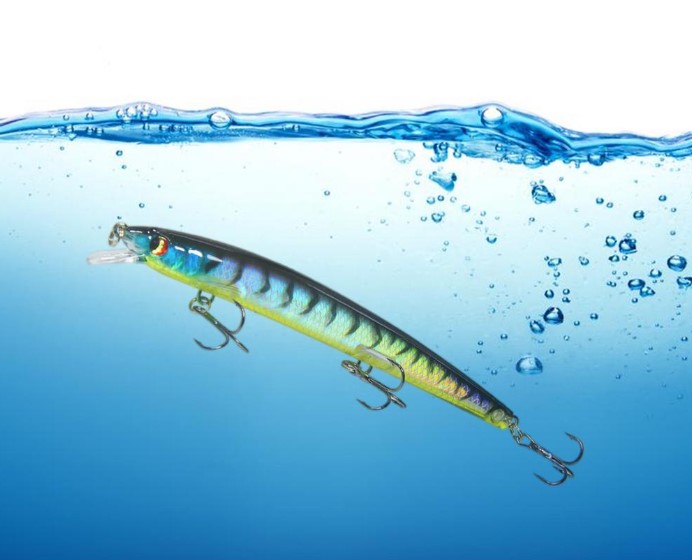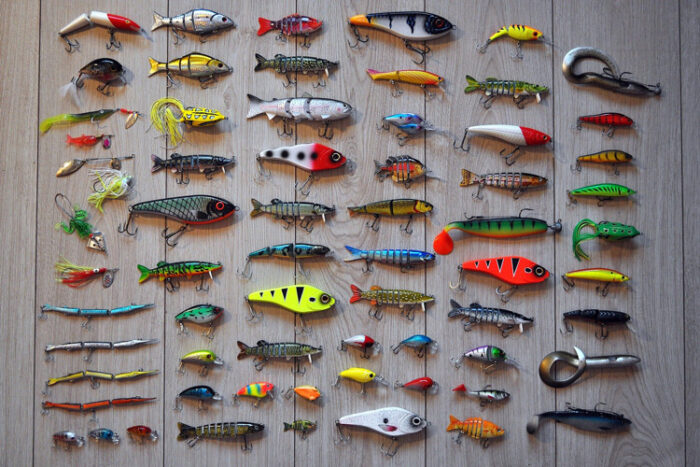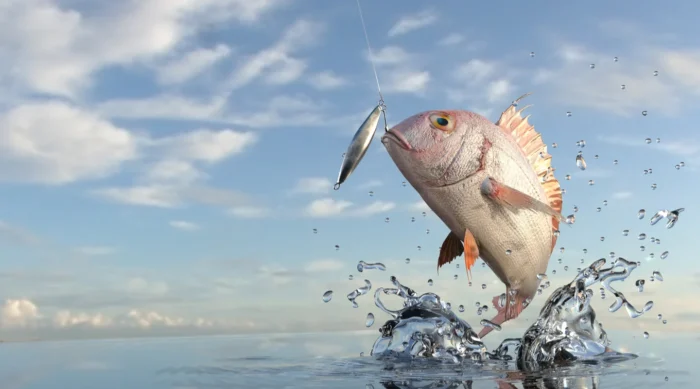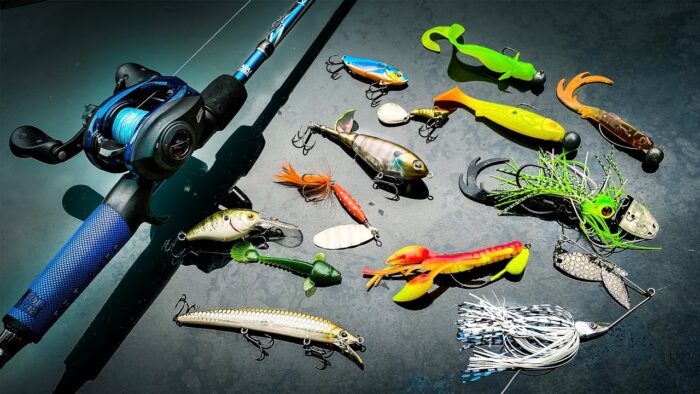
Freshwater lures are typically found in rivers, creeks, and other bodies of water with a relatively clean water source. Saltwater lures, on the other hand, are used in oceans, lakes, and other bodies of salty water.
In this article, we will explore the difference between freshwater and saltwater lures and see which ones are better suited for each type of fishing. Freshwater lures are typically smaller and more subtle, while saltwater lures are usually larger and more aggressively styled.
So whether you’re targeting catfish, largemouth bass, or trout, read on to learn more about the different types of lures available and find the perfect one for your next outing!
Lure Types
Lures available for fishing include jigs, flies, and spinners. Jigs are the most popular type of lure and can be fished either on a line or as bait on a hook. Flies are small and generally fly straight, and can be fished either as live bait or in imitation of prey items.
Spinners are one of the newest types of lures to hit the market and are made from materials like plastic or metal with a blade at the end that spins when the lure is moved through the water.
Freshwater Lures

When fishing for freshwater bass, anglers often use lures designed specifically for this fishery. Lures made for saltwater fishing, however, can also be effective in freshwater rivers and lakes. The primary difference between freshwater and saltwater lures is the type of bait they target.
Freshwater lures typically rely on live or artificial baits to attract fish. These baits are usually smaller in size than those used in saltwater fisheries, which makes them more likely to escape before a fish can take them. Saltwater lures, on the other hand, use heavier baits that sink faster and stay put longer. This makes them more likely to get a bite from big fish such as salmon or tuna.
Both kinds of lures can be effective when fished correctly. But if you’re new to freshwater fishing, sticking with smaller lures may be a better starting point. Once you’ve got a better understanding of how the river or lake behaves, you can experiment with different types of baits and techniques to find what works best for you.
Saltwater Lures
There is a significant difference between freshwater and saltwater lures. Freshwater lures are designed to be fished in freshwater, while saltwater lures are meant for use in salt water.
Some of the main differences between freshwater and saltwater lures include:
- Saltwater lures are typically more durable and can handle harsher conditions than freshwater lures.
- Saltwater lures can be fished in both fresh and saltwater, while freshwater lures are generally only effective in freshwater.
- Saltwater lures often have a stronger scent or flavor than freshwater lures.
- Saltwater lures are usually heavier and can be more effective when used as bait.
- Saltwater lures often come with a matching bait.
What are the Differences Between Freshwater and Saltwater Lures?

Freshwater lures are designed to be fished in freshwater while saltwater lures are designed to be fished in saltwater. Freshwater lures typically have a finer taper and a smaller surface area which makes them more sensitive than saltwater lures. Saltwater lures also typically have a larger surface area and a thicker taper which makes them more durable.
Another difference between freshwater and saltwater lures is the bait. Freshwater lures are typically designed to be fished with live bait while saltwater lures are typically designed to be fished with artificial bait.
Why Use a Freshwater or Saltwater Lure?
There are a few main reasons why freshwater and saltwater lures are different.
- Saltwater is corrosive, which can damage freshwater lures.
- Freshwater holds more oxygen than salt water, so freshwater lures tend to work better in salt water.
- Saltwater is denser than freshwater, which makes it harder for a lure to swim through the water.
- The taste of a lure is also affected by the water it is swimming in, freshwater lures tend to have a stronger taste than saltwater lures.
- Saltwater is denser than freshwater, which makes it harder for a lure to swim through the water.
How to Choose the Right Lure for Your Fishing Needs?

The lure you choose for your fishing needs will depend on the type of fishing you are doing and the fish you are targeting. Freshwater lures are designed to catch smaller fish, while saltwater lures are more commonly used to catch larger fish. Here is a breakdown of the main types of lures:
- Freshwater Lures: Streamers, jigs, and spinners
- Saltwater Lures: Bass and tuna lures
There is no one lure that will work for all fishing situations, so it is important to know the different features of each type of lure and which one will be best suited for your specific fishing needs. To find the right lure for your fishing needs, consider these factors:
- Size of fish: Larger lures are better suited for catching larger fish, while smaller lures are better suited for catching smaller fish.
- Type of fishing: Lure selection depends on the type of fishing you are doing. For example, a jig is a good choice for panfish fishing, while a spinner is better suited for trolling.
- Material: Most freshwater lures are made out of soft plastics or feathers, while saltwater lures are made out of metal or hard plastics.
Ultimately, the lure you choose is a personal preference and will depend on your individual fishing style and needs.
Conclusion
Anglers all over the world use lures to catch fish. But what makes them different? What separates one type of lure from another?
If you’re looking for a lure that will work well in both fresh and saltwater, look for a hybrid design that incorporates features from both types of lures.








